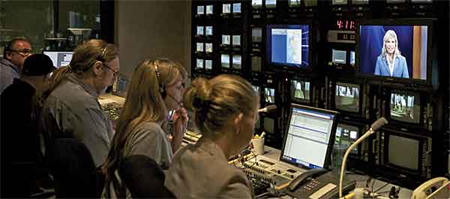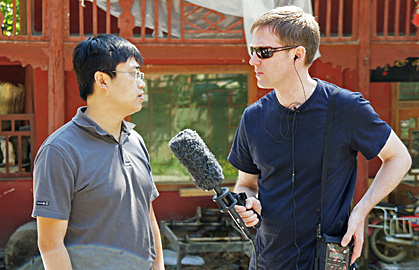Tag: Journalism
Merger with CIR brings shift in focus for S.F.’s Bay Citizen
Two years after its launch as a new online news organization covering the San Francisco region, the Bay Citizen is reconsidering its ...Multiplatform: KPBS extends its news expansion to television
With the launch of KPBS-TV's Evening Edition, the pubcasting outlet took another big step towards General Manager Tom Karlo’s ambitious goal to become “the ...Merger of Buffalo stations boosts news, reduces music
Public radio listeners are hearing more local news in Buffalo, where two stations that competed against each other are now operating as ...Knight seeds investigative news channel on YouTube
The nonprofit Center for Investigative Reporting is launching an investigative news channel on YouTube to serve as a hub for investigative journalism. ...Hearing by ethics watchdog could sew up feud in Seattle
Members of a Seattle-based media-watchdog group weighed in March 31 [2012] on a yearlong dispute between an antiabortion group and KUOW, the ...CPB will give guidelines to journalism hubs
CPB is evaluating proposals from six regional journalism hubs for another year of operation and will furnish the centers with a shared ...Journalism hubs should continue, but with guidelines, evaluation says
A consultant who evaluated the performance of seven CPB-backed Local Journalism Centers has recommended that CPB continue funding the multimedia startups for ...Philadelphia broadcasters John B. Roberts, 94, and Bruce H. Beale, 82
Two pioneering pubcasters in Philadelphia, John B. Roberts and Bruce Harrison Beale, died on the same day, March 8 [2012]. John B. ...Digital journalists look for lessons in work of Andy Carvin, NPR’s one-man newsroom
On a recent afternoon at NPR, Andy Carvin was watching a video of a protest purportedly shot in the Syrian city of ...Simple Googling dug up what Daisey had hidden
Within a few hours of phoning the translator who refuted key details in a This American Life show about factories that manufacture Apple products ...Late date seals fate of Oregon Public Broadcasting’s debate
When three unlikely partners — a conservative newspaper in the nation’s capital, a blue-state Republican organization and a public broadcasting station in ...Frontline alumnus will lead incubator for new ventures
Public Media Accelerator, a laboratory for developing new-tech public services backed by a $2.5 million grant from the Knight Foundation, will be ...Alex Chadwick: Recharged to cover an energetic beat
Alex Chadwick was lost. It took a journey to an unlikely place — the whitewater rapids of a Utah canyon — for ...Policy delay of nonprofit status spikes Chicago News Cooperative
Rumors started quickly, trying to explain why the Chicago News Cooperative was closing. The Internal Revenue Service had rejected the co-op’s application ...New NPR ethics code discourages outside contracts
NPR journalists must seek management approval to sign work contracts with other media outlets, and most such requests will not be granted, ...







